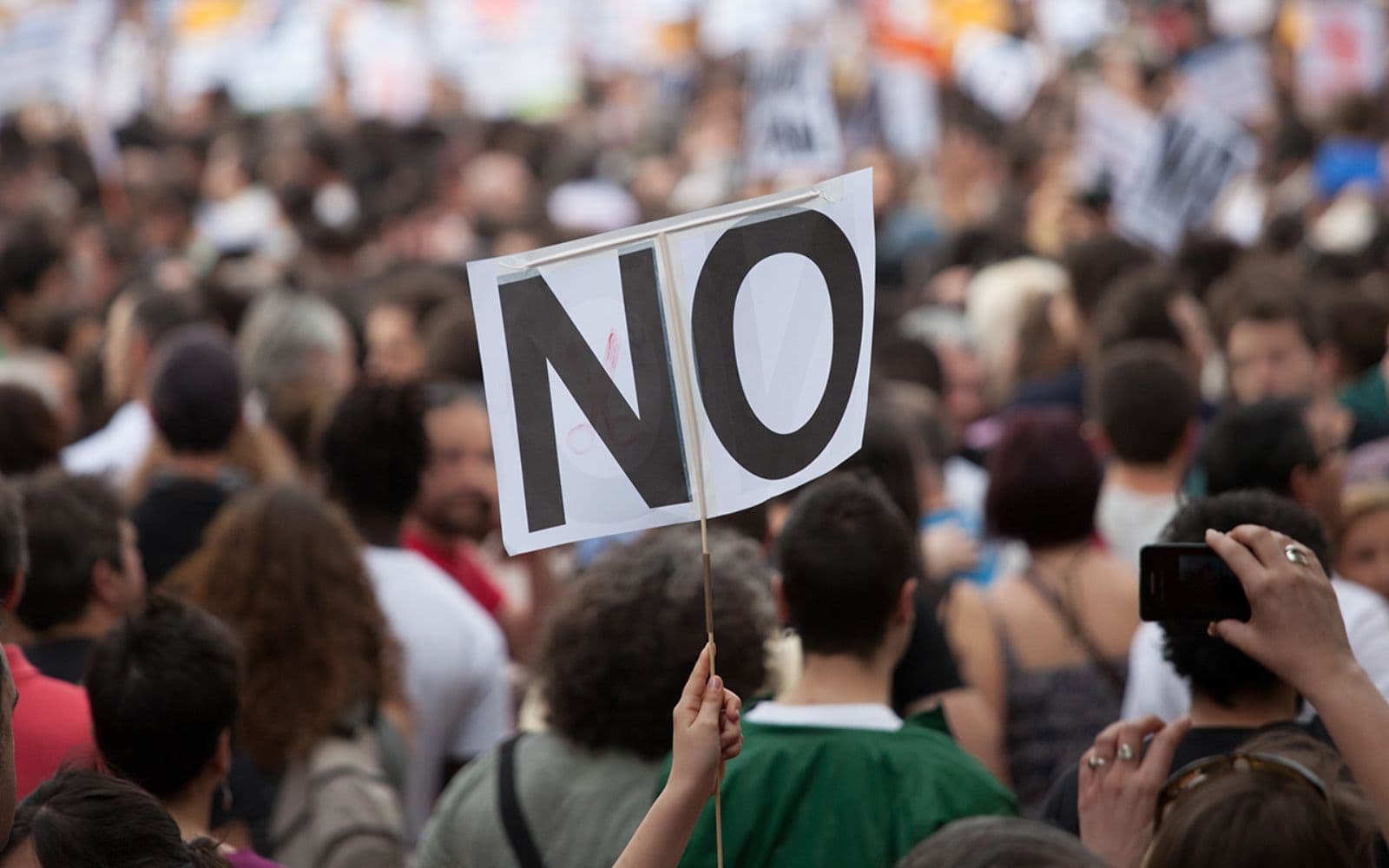By Aristotle Vossos

Photo: Clickhole.com
There is a seemingly endless debate, as much on our campus as in the media on discrimination, whether this be based on gender, sexual orientation, or race. I am not here to argue that this discrimination does not exist – far from it. It is far more prevalent in our world than one would hope, especially in 2018. But I do believe that there is a rising tendency to choose to be offended over some things and cry discrimination over the smallest details, which is diluting the very important fight against real discrimination.
I am Greek, if this were not obvious enough from my name. Being born Greek is far from the worst thing to happen to someone, but it is also rather far from the best, considering the current state that Greece finds itself in. However, I had the luck of being born white, male, straight, and into a fairly well-off family. These all give me a massive head-start on life over 99.9% of everyone else. In most discussions over discrimination, my opinion usually counts for very little because of these qualities. But below one can find a far-from exhaustive list of times when I could have chosen to be offended over comments made about my nationality:
- The numerous times I was asked where I was from in the United States, responded with “Greece”, and received a look of pity and “Oh.”
- When I was asked by someone whether we had cars in Greece because they had seen a postcard of a man on a donkey on a Greek island.
- When I was asked whether we had fridges in Greece.
- And one of my favourites – when I was in a ski-lift in Switzerland with my family and was asked by a Swiss skier in the same lift where we were from. When we responded with Greece, said skier proceeded to ask us how we could possibly afford to go skiing in the Swiss Alps.
Each of these times I could have easily been offended, as many people are when similar comments are made about their countries, whether these concern stereotypes about how poor or corrupt their country is, the prevalence of drugs, the lack of electricity or running water, and so on. I wasn’t. Many argue that comments of the nature cited above show a lack of respect on the commenter’s side, and more seriously, they show discrimination and bias against the other person, as well as how deeply rooted social stereotypes can be. This is true. Yet with nearly 200 countries in the world, it would be absurd to expect the average citizen to educate themselves on each and every one of them. More importantly, how could I blame someone for making an uneducated comment on my country when all they read about in the news is how bad the situation is. I would have the same opinion they do if all I ever read about a place was bad. So, if we should direct our anger at anything, it should be towards the ‘pay-per-view’ culture that is becoming more and more prevalent in our world, pushing many news agencies to simply publish articles that will get views, which almost always involve negative coverage.
Furthermore, many claim that they or others are discriminated against for being minorities. This claim implies certain things. Firstly, it acknowledges that there is a stereotype of someone in each country that does not get discriminated against. For example, in France that person is almost always white. Therefore, in a hypothetical scenario where someone is ‘randomly selected’ at the airport for extra screening, they can only claim to have been discriminated against if they are not white. They may be Mexican and identify as Hispanic, but if their skin color is white, until they open their mouth or show their passport, they cannot be discriminated against by virtue of their Mexican nationality. Moreover, anyone claiming discrimination also needs to prove causality. If a black man is arrested for stealing, that is not discrimination, that is the law. If that black man is beaten up or shot while having done nothing more than steal, then discrimination is fairly clear. Again, even in this case, if the officer that shot him had a history of aggressive behaviour against everyone, whether they were white or black, this is most likely the cause of the shooting, rather than discrimination against the man for his skin colour.
So, why am I focusing on these controversial issues? Because crying discrimination for the slightest offence dilutes the very real issues at heart. This is not to say that the smaller incidences of discrimination are insignificant. Unless we deal with the big issues, we can’t possibly start to deal with the smaller ones. So next time someone makes a ‘discriminatory’ comment, choose to view it as a reflection of who they are and external circumstances rather than getting offended by it. At the end of the day, being offended is going to affect you much more than it will affect anyone else.
Aristotle Vossos is a second year student who likes to criticize Sciences Po and anything Sciences Po related. When not doing that he likes to criticize France. And when not doing that he’s either drinking or sleeping. The Straight White Male runs once a month.
Other posts that may interest you:
- The Trouble with ‘Ecocide’
- Carbon dioxide removal – hit or miss?
- Local Victories for Turkish Opposition — A Sign of Hope?
- Are France and Japan a Mismatch Made in Heaven?
- A Reflection on Dark Tourism
Discover more from The Sundial Press
Subscribe to get the latest posts sent to your email.





